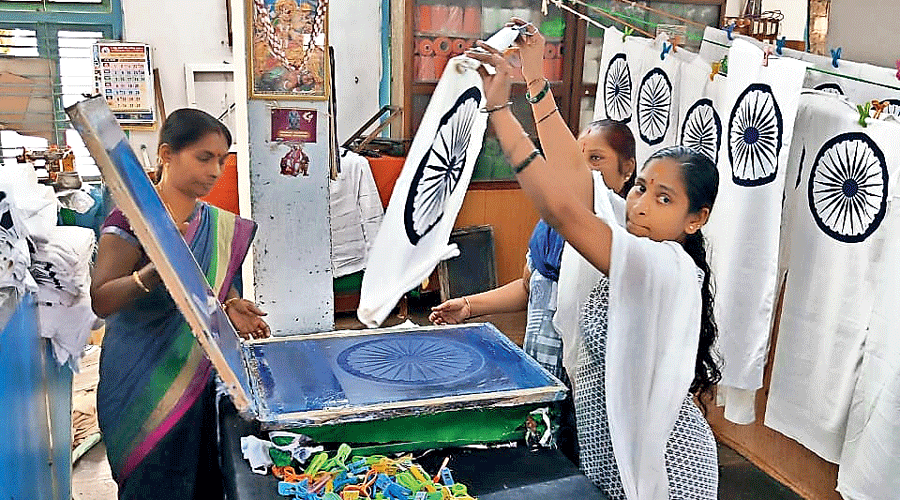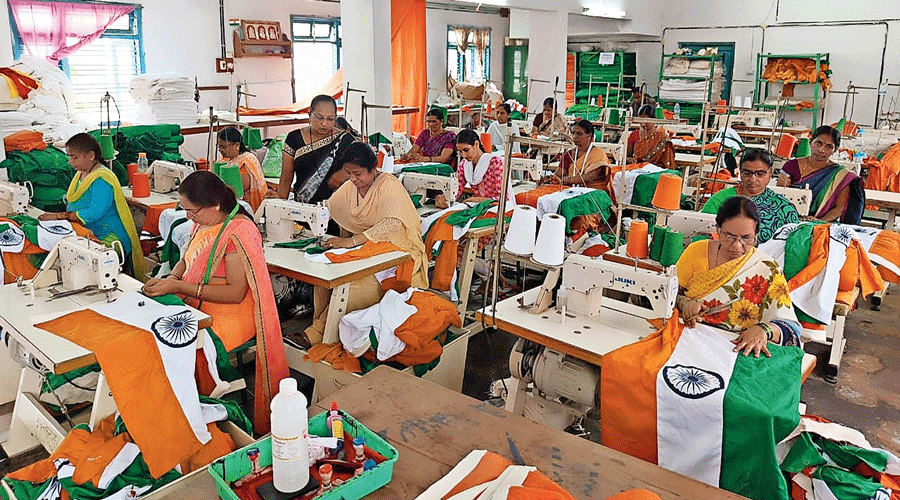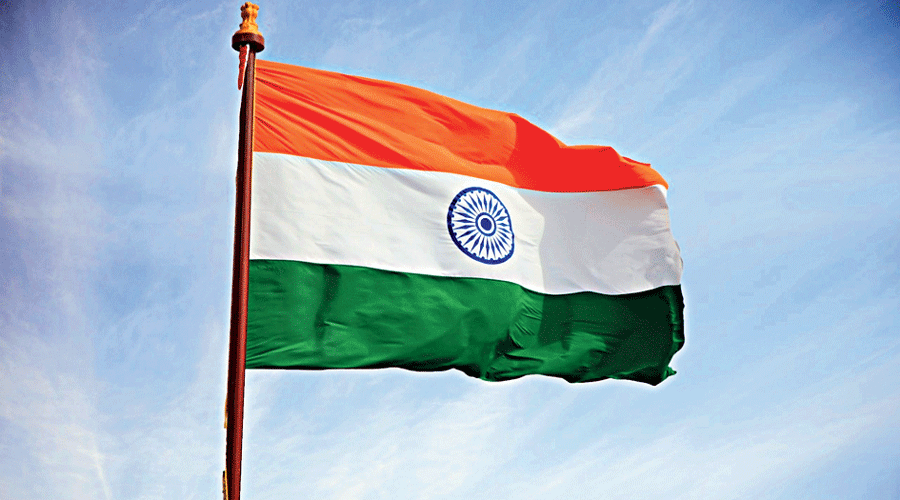The country’s leading Tricolour-maker plans a countrywide agitation of khadi manufacturing units, apart from moving the Supreme Court, unless the Centre revokes its decision to allow national flags to be made with polyester, Indian or imported.
The Hubli-based Karnataka Khadi Gramodyog Samyukta Sangh, the sole manufacturer of pure khadi Tricolours that conform to the Bureau of Indian Standards specifications, faces closure as a result of the government decision.
Samyukta Sangh secretary Shivananda Mathapati told The Telegraph last week that the date and the mode of agitation would be decided later.
“We are certainly going on an agitation against allowing national flags to be made with polyester. We also plan to approach the Supreme Court to set aside the government order,” Mathapati said.
“Our protests will start from Karnataka and spread to other states with the help of khadi units located in those states.”

Workers at the Karnataka Khadi Gramodyog Samyukta Sangh in Hubli make the Indian national flag. Picture credit: The Karnataka Khadi Gramodyog Samyukta Sangh
The Samyukta Sangh has yet to decide whether the agitation should be a tool-down strike since the demand for the national flag would be high ahead of Independence Day.
“We are working out how best to convince the Centre to stick to khadi bunting for national flags,” Mathapati said.
“We have already written to Prime Minister Narendra Modi to reconsider the decision to allow polyester flags and are waiting for a positive response.”
The Congress — which alleges the government decision violates the spirit of the freedom movement and will help one of Modi’s capitalist friends who manufactures polyester — has extended full support to the Samyukta Sangha.
Mathapati said the government decision would “end up killing the khadi sector since it would reduce the respect for the hand-spun and hand-woven fabric, made famous by our freedom fighters and still used by thousands”.
While the national flag was originally made only with cotton khadi, the Flag Code of India 2002 allowed the use of handmade wool and silk too.
“The National Flag of India shall be made of hand-spun and hand-woven wool/ cotton/ silk khadi bunting,” states the 2002 code, which has recently been relaxed to include polyester — a machine-made fabric — whether Indian or imported.
“More than 45,000 people, 95 per cent of them women, are employed in the khadi sector in Karnataka alone. They earn between Rs 350 and Rs 400 a day. Any negative impact on the demand for khadi would be catastrophic for these workers,” Mathapati said.
He said the policy change was probably prompted by the government’s Har Ghar Tiranga campaign to encourage every house to fly a national flag to commemorate the 75th anniversary of Independence, which falls on August 15 this year.
“But we need to remember the sanctity associated with khadi, which is why our founding fathers wanted all national flags to be made from khadi. It’s also the reason the Centre banned the import of plastic national flags in 2019,” he said.
Mathapati said that national flags made by the Samyukta Sangh are used at the Rashtrapati Bhavan, Parliament, state Assemblies, Raj Bhavans and other institutions of national importance.
“Several khadi units make national flags but we alone have the BIS certificate. We, therefore, are the sole suppliers of national flags to all major national institutions,” he said.
The Samyukta Sangh’s units in Hubli and Bagalkot make around 80,000 national flags each year. “We have sufficient spare capacity to enhance the production,” Mathapati said.
Many social media users too have attacked the idea of polyester Tricolours.
Tushar, a tweeter, wrote: “Every strand of khadi has absorbed the sacrifices of all our freedom fighters that is why a khadi Tricolour flag is loved and venerated and is vital. A flag made from polyester can never command that relationship.”












